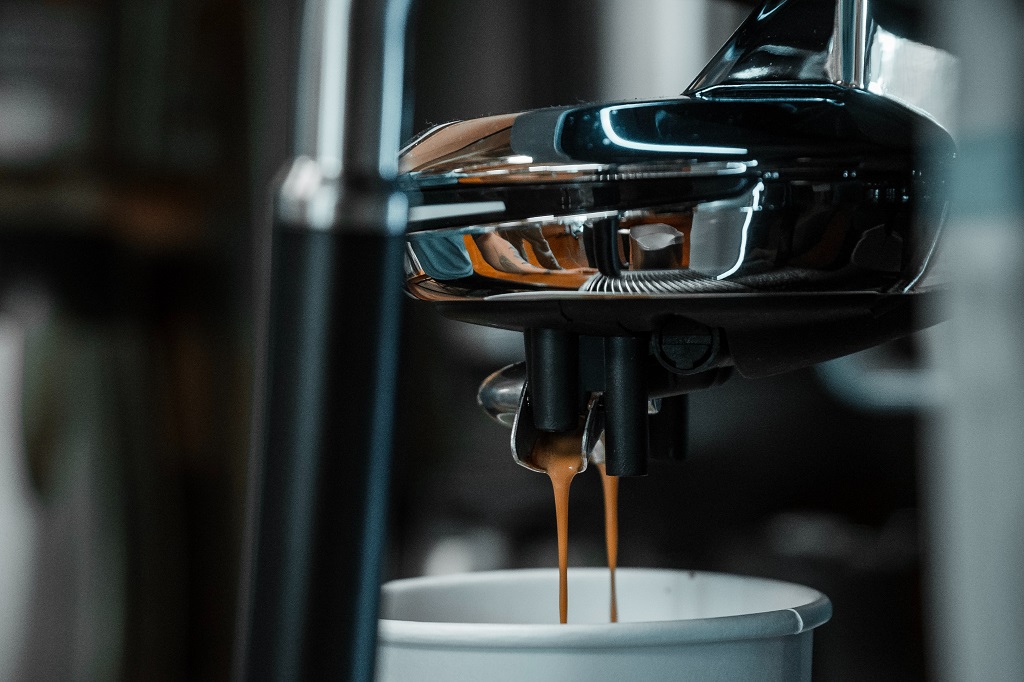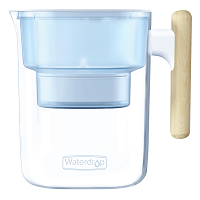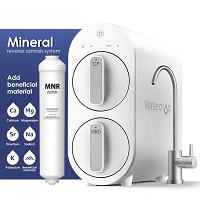The world's three major beverages: tea, coffee, cocoa. These three drinks all have a strong bond with water as water is absolutely essential for them.
The reason why water is very important for coffee is that 99% of a cup of coffee is water, and the quality of water directly affects the flavor and taste of coffee. This article will break down into details and explain how the water quality affects the coffee flavor and taste from the following aspects: the pH level of water, the hardness of water, the TDS level of water. Check here to learn how to learn more about how to remove TDS in water.
How does the water pH affect the coffee taste
The acidity and alkalinity of water are determined by the ions in the water. If the content of hydrogen ions is large, the water will be acidic, and if the content of mineral ions is large, the water will be alkaline. Acid and alkali are chemically expressed by pH value, pH=7 is neutral, pH<7 is acidic, and ph>7 is alkaline.
As for coffee, it is a weakly acidic drink with a pH of 5-6. If you use water with a pH above 6 to brew coffee, it will increase the pH and reduce the acidity of the coffee. The higher the pH of the water, the stronger the effect of removing sour taste.
Of course, this is not to say that the higher the acidity, the better. For example, people who are more accepting of sour taste may feel that the coffee has lost its original flavor when using water with a higher pH to brew coffee. Another example is that the pH of mineral water is higher than that of ordinary drinking water, especially the sodium ion content is higher. When it is used to brew coffee, it is easy to generate a salty taste and eventually affect the taste of coffee.
Therefore, the choice of what pH water to brew coffee depends on your own taste and preference. If you use bottled water, you might want to check the sodium ion content on the label, and it’s better not to be too high in order to keep the original flavor.
How does water hardness affect the coffee taste
Water hardness refers to the calcium and magnesium ion content in water. Although there are other minerals in the water, the common water hardness is mainly used to measure calcium and magnesium ions dissolved in water. The measuring unit is mg/L or grain/gallon. We have written a blog about hard water before, check here to read.
Soft water refers to water that contains no or less soluble calcium and magnesium compounds, whereas hard water is the opposite. Softened hard water refers to the softened water obtained by reducing the content of calcium and magnesium salts to 1.0-50 mg/L.
Although hard water can be temporarily softened through boiling, in coffee production, boiling water is normally not be used to extract coffee.
The impact of soft water and hard water on coffee is quite self-evident. We can easily taste the big difference when drinking soft water and hard water alone, not to mention the impact of water quality in terms of the flavor in coffee.
Soft water has a softer taste, so the brewed coffee is rounder and softer. A certain level of calcium ion can bring up the sweetness taste, yet, if the calcium content is too high, the taste can be relatively poor.
Soft water can also make the flavor of coffee less clear compared to hard water. When extracting coffee, if there is a certain amount of calcium ions and carbides, the flavor can be generated subtly in these minerals at the proper amount, scale, and temperature of coffee grounds.
Therefore, it is not soft water that can produce a better taste, but the corresponding water quality with moderate hardness and softness that can be the ideal water for extracting coffee.
How does TDS In water affect the coffee taste
TDS is short for total dissolved solids, it refers to the concentration of all the dissolved solids in water. The unit of measurement for TDS is grams per ton. Contains 1 gram of soluble solid matter, that is, 1 part per million, as abbreviated as ppm.
In simple terms, the higher the ppm value, the more soluble substances in the water, so the extraction rate will be lower when extracting coffee; and the lower the ppm value, the less soluble substances in the water, so the extraction rate when extracting coffee will be higher.
According to the research of SCAA (Specialty Coffee Association of America), the ppm value between 125-175 is the most ideal TDS value for extracting coffee, and it is easier to achieve an ideal value of concentration and extraction rate. If the ppm value is lower than 75, it is easier to over-extract; if the ppm value is higher than 225, it is easier to have under-extraction.
The Recommended brewing water standard
| The Recommended Brewing Water Standard | ||
| TDS | pH Level | Hardness |
| 120-130 ppm | 7.0 | 70-80 mg/L |
How to get qualified water for brewing coffee
Most of the cafes and coffee shops use filtered water to make coffee. You can buy a simple water quality measuring device to test the water you use, and choose water purification equipment and water softening equipment based on the water quality of your tap water, which can be used not just for making coffee. By doing so, you can enjoy a better taste of coffee as well as prolong the service life of your coffee machine.
Below are three types of water purifications that are ideal for coffee brewing.
Water distillation
Water distillation is a good choice for accessing pure water. It is a water purification method that brings you pure H2O by heating up the water. The water vapor generated through boiling will rise up and turn into pure water when touches the cold surface of a container. The impurities of water will therefore be left behind.
The downside of this method is the loss of all minerals in the water, which might slightly affect the coffee taste. High energy and time consumption is another down point why water distillation is not popular in commercial coffee shops.
Carbon Fiber
Carbon Fiber that is known for its great capability of removing bad taste and odor in water. If you have your water tested and the quality is fairly good, then you can simply choose a water filter pitcher with a carbon block filter.
The Waterdrop PT-04 water filter pitcher would be a good choice for you. The pitcher has been tested against NSF 42 and NSF 372 for lead reduction and product safety. This modern design pitcher has a large filtration capacity of 10 cups, enough for you to brew coffee for the entire family. The extended filter service life saves you cost and efforts on filter replacement.
Reverse osmosis
Reverse osmosis is by far the most efficient filtration method for both commercial and home uses. It has been widely used in coffee shops and university cafes for direct drinking water and beverage making. Water that gets filtered through a reverse osmosis system is safe while maintaining a proper amount of minerals, which is the most ideal water for coffee brewing.
The Waterdrop G2 MNR system is a perfect choice here. The compact tankless design saves much undersink space. The advanced RO membrane effectively reduces the TDS in water as well as impurities like chloramine, atrazine, salt, etc. The external remineralization filter can add back a proper amount of beneficial minerals to compensate for the loss in taste and minerals after filtration.
Conclusion
Maybe you have bought an advanced coffee machine or expensive coffee beans, but the taste of the brewed coffee is not very satisfying. The water quality might be the reason. Hope you can enjoy a better cup of coffee after reading this article.





